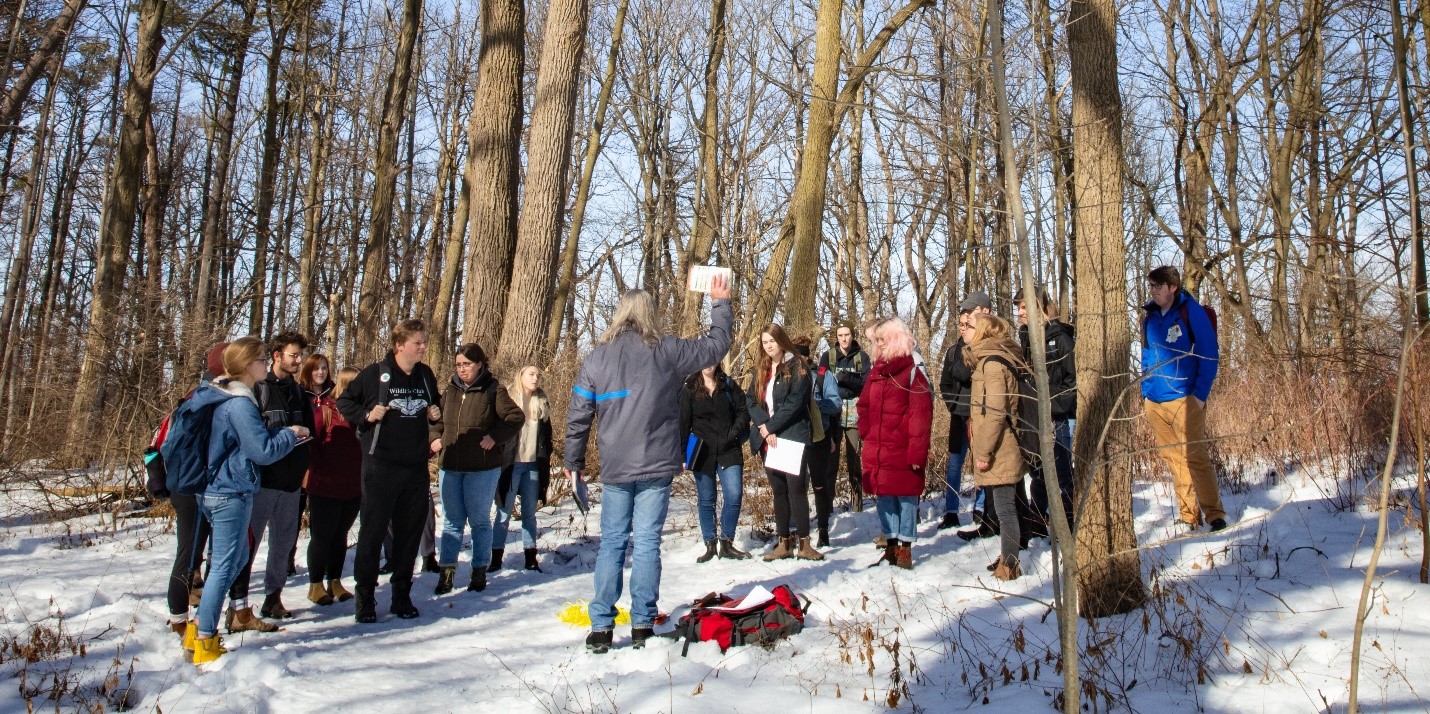
What’s Unique? The program uniquely empowers students to address policy issues related to the environment through the practical application of economic theory and methods. Students develop an appropriate skill set for both postgraduate studies and professional career paths.
Co-op? Is available.
- Study for a semester in another country on a student exchange program.
- Work with faculty on a research project.
- Gain leadership skills with the opportunity to run a leadership conference, become a peer helper, organize charity events, and run for student government.
- Explore the many experiential learning opportunities at Experience Guelph.
- Join student-run clubs and associations, such as the Environmental Sciences Student Executive
|
1st year: |
2nd year: |
3rd year: |
4th year: |
|
Building the science foundation and linking law and economics: calculus, biology, chemistry, introduction to environmental sciences, economics |
Intermediate and applied economics, introduction to empirical methods: natural resource economics, mathematical economics and statistics |
Getting into applied research and preparing career choices: empirical research methods, cost-benefit analysis of public policy; 7 out of 10 courses are electives |
Diving deeper into economic analysis and independent research: land economics, resource economics, two project courses in environmental science |
|
Elective options allow students to explore specific areas of interest, such as quantitative methods, policy analysis, remote sensing, earth sciences, ecology. See the Undergraduate Calendar for more information. |
|||
- Environmental Sciences
- Biophysical Environment
- Environmental Economics, Law and Policy
- Economic Growth and Environmental Quality
- Cost Benefit Analysis
- Project in Environmental Sciences
Ontario students applying to the program require 4U English; Advanced Functions; two courses from 4U Biology, Chemistry and Physics; two additional 4U or 4M courses. To be best prepared for semester one, all applicants are advised to include 4U Biology, Chemistry, and Physics.
Link to the Ontario Agricultural College website.
Please contact the department’s Undergraduate Program Coordinator. (Link to the Department’s contacts page)
Alumni, friends and partners of OAC support scholarships and awards each year for new and in-course students. The University of Guelph also provides a variety of scholarships and bursaries for deserving students. (Link to Student Finance at UofG)